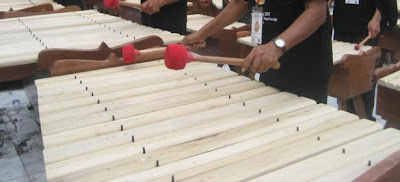The promise of an experience both rich in culture and adventure never ceases to lure visitors to exotic Manado
Once A jealously guarded secret among the most traveled of backpackers, this magical land in Indonesia, with its pristine tropical rainforest and offshore island paradise, was formally introduced to the outside world when SilkAir started its direct flights to Manado, a few years ago,
Take a stroll around Manado and the well-integrated local communities will impress you. Generations of interaction with the Portuguese, Dutch, Filipinos, Chinese and other racial groups has greatly influenced the Manadonese to be sympathetic, easy-going and cheerful.
The legacy of centuries of Dutch control has also left Manado with many Christian churches. This predominantly Christian city lives up to its ’spice islands’ reputation and is still exporting large quantities of clove, nutmeg and vanilla, among other spices, to the rest of the world. Visitors come to Manado primarily to visit the 75,265-hectare Bunaken-Manado Tua Marine Park that consists of five offshore islands – Bunaken, Manado Tua, Siladen, Montehage and Nain.
Whether you are a novice snorkeller or an experienced diver with thousands of dives under your belt, you will be astounded by the rich bio-diversity that inhabits the crystal clear waters at the park’s more than 20 dive sites. The enticing shallow reed flats and the coral-encrusted steep walls will satisfy even the most discriminating of snorkellers and divers. Here, you can expect to see reef sharks, barracudas, eagle rays, butterflyfish, anthias and other underwater marine life.
 One of the world's last untainted marine sanctuaries is found wrapped around the island-studded tip of the North Sulawesi Peninsula in Indonesia
One of the world's last untainted marine sanctuaries is found wrapped around the island-studded tip of the North Sulawesi Peninsula in IndonesiaNevertheless, you will need the trained eyes of the professional local dive guides to spot the interesting little critters that expertly camouflage themselves to blend with their coral hosts. Two species of deep-sea living fossils, the Nautilus and the recently discovered Coelacanths also dwell in the abyss. At the ocean’s surface, dolphins and pilot whales make frequent appearances. Elusive dugongs and migrating whales – humpbacked, killer, sperm and minke whales – do surprise visitors with their occasional presence.
The marine park’s extremely deep seabed and its steep coral walls as close to the shore, allow 70 genera of corals (compared to only 10 in Hawaii) and over 2,500 species of fish to stay in harmed from the illegal practice of dynamite fishing. Locky Herlambang, the founder of Manado’s very first dive centre, reinforces the pristine condition of this reef by fighting for the federal government’s declaration in 1989 to make this area a national park. Towards this he started a conservation programme among the local fishermen when foreign tourists began to arrive. At present, the Pacific Asia Travel Association (PATA) and its division, the North Sulawesi Watersports Association (NSWA), are working in close conjunction with local communities, government officials, local dive resort operators, nature groups, travelers and scientist to play an important role in managing, developing and conserving the park’s natural resources.
Not to be outdone by Bunaken’s spectacular reefs, an American-owned resort at Kunkungan Bay in the nearby town of Bitung boasts of diving of a different kind – ‘muck diving’. Within the protected waters of the Lembeh Straits, and in waters less clear and a lot colder from that of Manado’s, this nutrient-rich strait supports some of the worlds most rare and remarkable creatures. The dedicated and courteous guides from the resort promise sightings of secretive mandarin fish, pygmy seahorse, frogfish, ghost pipefish and the mimic octopus among other elusive species.
With reef life in such abundance, spot fishing is naturally promising too. Along the deep waters off the Bunaken Park and around Bangka Island, anglers can expect to find yellow fin tuna, bonitos and billfish year-round. According to the local fishermen, these fish are the most robust during August and September as they feed on the baitfish that moves from the open ocean into the shallows.
Manado’s land experiences are just as mesmerizing as its underwater world. Take a scenic ride to the highland regions of Minahasa at the village of Kali where a waterfall plunges 60 meters. A kilometer walk to the waterfall takes you past the friendly Minahasa village, its local plantation and a refreshing spring flowing from the mountain. Among the rich vegetation, the sugar palm bears fruit that is used by the locals to make saguer, a traditional sweet and sour alcoholic brew.
The nearby mountainous town to Tomohon has long been a centre for Christian missionaries. Ride on ornate pony carts called bendi, and enjoy the vibrant colors from the numerous flower stalls that line the main road. This city is locally known as the ‘City of Flowers; because of the wide range of flowers, as well as fruits, which are commercially grown, flooding the markets of Manado. Nestled on both sides of Tomohon are the two famous volcanoes – Lokon and Mahawu. The trail of the frozen lava from previous eruptions leads to steaming crater lakes where a breathtaking panoramic view of the Bunaken Islands awaits.
At Tara Tara, experience Minahasan’s traditional dances and music. Every Sunday afternoon, at 3pm, visitors are entertained by the rhythmic cakalele dance accompanied by a bamboo kolintang percussion band. In Manado, there is enough to do on land and more waiting to be discovered beneath the waves. This destination continues to fascinate wide-eyed travelers who venture to this pristine land of many exciting characters.
Bunaken National Marine Park - Manado




